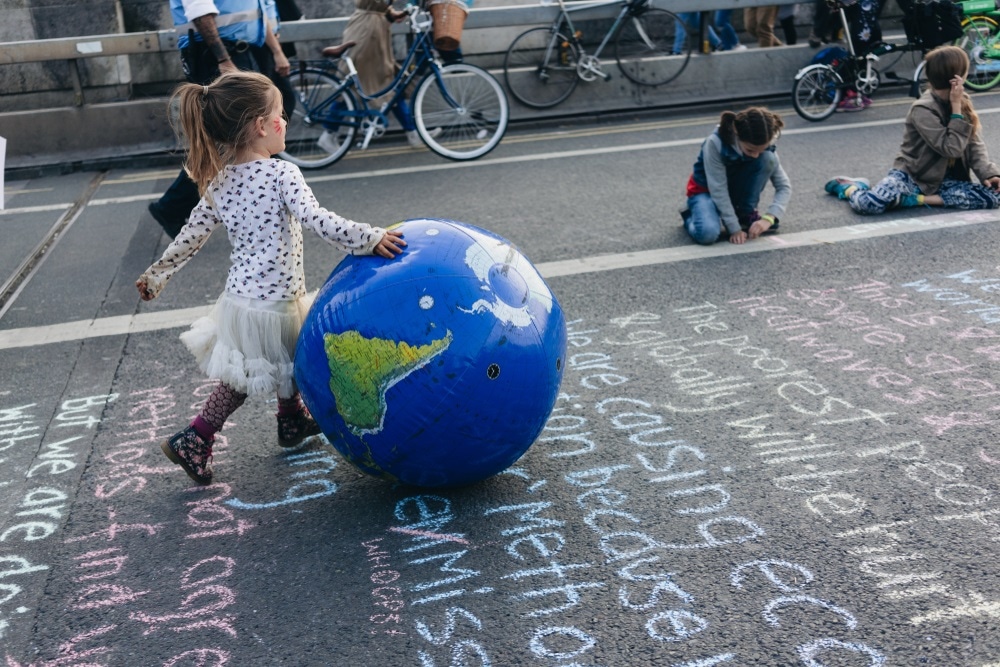
Climate change poses unprecedented threat to children's health
A major new report has warned that climate change poses an unprecedented threat to children and will impact on human health from infancy and adolescence, through to adulthood and old age.
 Image Credit: Sandor Szmutko / Shutterstock.com
Image Credit: Sandor Szmutko / Shutterstock.comThe 2019 Lancet Countdown on health and climate change is a major international and multidisciplinary collaboration, dedicated to monitoring the emerging health impacts of climate change and independently assessing the delivery of commitments made by governments globally under the Paris Agreement.
The collaboration involved 120 experts from 35 leading academic institutions and UN agencies from every continent.
Children are already being affected
The report warns that climate change is already having a “persistent and pervasive” effect on children that will last their lifetimes, and without a drastic reduction in emissions, a warming planet will mean the next generation would be burdened with high levels of malnutrition, weakened immune systems and an increased risk of premature death.
The projections published in the 2019 report are based on updates of 41 indicators across five key areas of climate change, including impacts, adaptation, mitigation actions, economics, and public and political engagement.
What happens if we continue with “business-as-usual?”
The report lays out what would happen to humanity if the “business-as-usual” approach continues, which would mean a child born today would be living in a world that is more than 4 °C warmer than the pre-industrial average by their 71st birthday.
Researchers say climate change will threaten them from infancy through to old age unless drastic action is taken to limit the rise in temperature to well below 2°C.
Scientists predict that the rising temperature will reduce yields of staple crops such as rice, maize, and soybean, causing prices to rise and leaving children at risk of malnutrition, stunted growth, and developmental problems.
Children will be among the worst off
“Across the world, children are among the worst affected by climate change. Downward trends in global yield potential for all major crops tracked since 1960 threaten food production and food security, with infants often the worst affected by the potentially permanent effects of undernutrition,” says the report.
The scientists say that rends in climate suitability for disease transmission are particularly concerning. Nine of the ten most clinically suitable years in history for dengue fever transmission have been since 2000, and mosquitoes are now starting to spread across Europe and other new regions.
He adds that the damage done during early childhood is persistent and pervasive, with health consequences lasting for a lifetime.
“Without immediate action from all countries to cut greenhouse gas emissions, gains in wellbeing and life expectancy will be compromised, and climate change will come to define the health of an entire generation.”
Air pollution is causing premature deaths
In 2016, air pollution caused 20,500 premature deaths in the UK, and researchers say the impact of air pollution is due to worsen in coming years.
Young people are especially vulnerable to air pollution, which contributes to poor lung function and worsens asthma. If pollution levels stay the same as they were in 2016, the economic loss and health costs for Europe could reach €129bn per year.
Extreme weather patterns are expected to intensify
Extreme weather patterns are also expected to intensify, with older individuals in European cities and across the eastern Mediterranean at the most risk.
In 2018, 220 million more people aged over 65 years were exposed to heatwaves than in 2000.
“This year, the accelerating impacts of climate change have become clearer than ever,” says Hugh Montgomery, co-chair of the report. “The highest recorded temperatures in western Europe and wildfires in Siberia, Queensland, and California triggered asthma, respiratory infections, and heat stroke.”
Montgomery adds that sea levels are also now rising at an ever-concerning rate.
Children are recognizing the emergency and demanding action
“Our children recognize this climate emergency and demand action to protect them. We must listen, and respond,” warns Montgomery.
Scientists say that for the world to reach its climate targets, carbon dioxide emissions need to fall by 7.4% every year until 2050.
He concludes, “With the full force of the Paris Agreement due to be implemented in 2020, we can’t afford this level of disengagement.”
Journal reference:
Watts, N. et al. (2019). The 2019 report of The Lancet Countdown on health and climate change: ensuring that the health of a child born today is not defined by a changing climate. The Lancet. DOI: https://doi.org/10.1016/S0140-6736(19)32596-6



































No hay comentarios:
Publicar un comentario